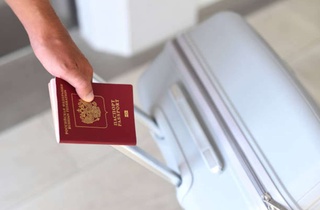“Countries bordering Russia are increasingly concerned about the substantial and growing influx of Russian citizens to the European Union and the Schengen area through our borders. We believe that this is becoming a serious threat to our public security and to the overall shared Schengen area,” Poland, Latvia, Lithuania and Estonia said in the statement issued Thursday in a joint statement.
They stated that “among the Russian citizens entering the EU/Schengen area, there are persons coming with the aim of undermining the security of our countries, insofar as three fourths of Russian citizens support Russia’s war of aggression in Ukraine.”
Welcoming the decision to suspend the EU visa facilitation agreement with Russia as a necessary first step, they went on to say: “However, further measures are needed both to drastically limit the number of visas issued (primarily tourist visas), and to decrease the flow of Russian citizens into the European Union and the Schengen area. At the recent Gymnich meeting in Prague, Member States acknowledged the increasingly challenging situation in those Member States bordering Russia which gives rise to taking relevant measures at the national level in order to restrict entry of Russian nationals into the European Union through their borders.”
The countries have agreed on “a common regional approach and hereby express their political will and firm intention to introduce national temporary measures for Russian citizens holding EU visas in order to address imminent public policy and security threats and restrict the entry into the Schengen area for the Russian citizens travelling for tourism, culture, sport and business purposes.”
“National temporary measures based on common approach should enter into force in each of our countries separately, by 19 September 2022,” they said, adding that the measures are adopted on the common grounds of protecting the public policy and internal security, as well as the overall safety of our shared Schengen space. (ILKHA)



 Dünya
Dünya
 Güncel
Güncel
 Dünya
Dünya
 Spor
Spor
 Dünya
Dünya
 Güncel
Güncel
 Spor
Spor
 Dünya
Dünya
 Dünya
Dünya
 Güncel
Güncel





